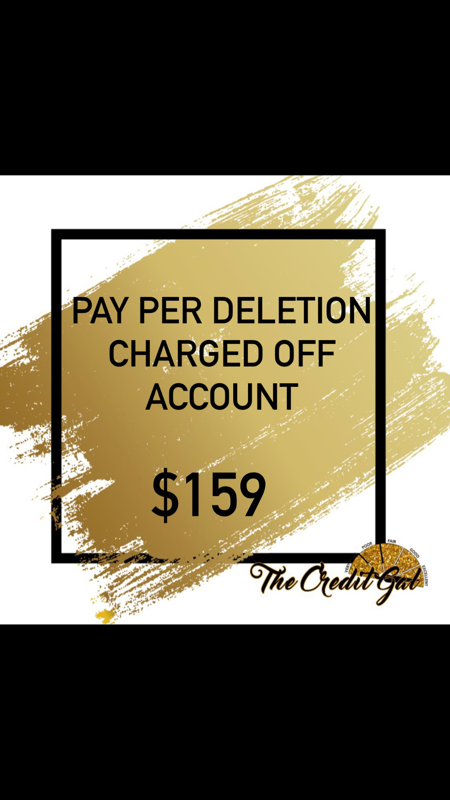

When a car is repossessed, the lender not only gets to keep the money you’ve already paid, they take your vehicle and you will still owe the deficiency balance after the vehicle is sold. While neither scenario is good, in most cases, a charge off is better than a repossession. Is a Charge Off Better Than a Repossession?

Charged off account plus#
You will be required to pay your entire past due balance, plus the money spent by the lender to repossess the property. If your car or other collateral (such as jewelry, furniture or other personal property used to secure a loan) are repossessed, most states will allow you to catch up on your payments and have your property returned to you. This is called a deficiency balance, and it won’t be released until you pay off the remainder of the loan. The proceeds from the sale of the car will be applied to your loan, but you will still owe any balance that remains after the sale. The contract signed when you bought the car allows the lender to take your collateral and sell it. In the case of the car loan, your vehicle is considered the collateral for your car loan. When a creditor takes possession of your vehicle, or other collateral, because you are delinquent in your loan payments, it is called a repossession. In either case, you are still responsible for the debt. In other cases, the debt has been sold by the lender as now in the hands of a collection agency who will attempt to collect the debt for their own gain. In some cases, the collection agency is being paid to collect the debt for the original lender. Unfortunately, that is not the case. When a debt has been charged off, it has most likely turned over to a collection agency for collection. If you come across the term “charge off” on your credit report, you may think that it means the debt can no longer be collected.


 0 kommentar(er)
0 kommentar(er)
